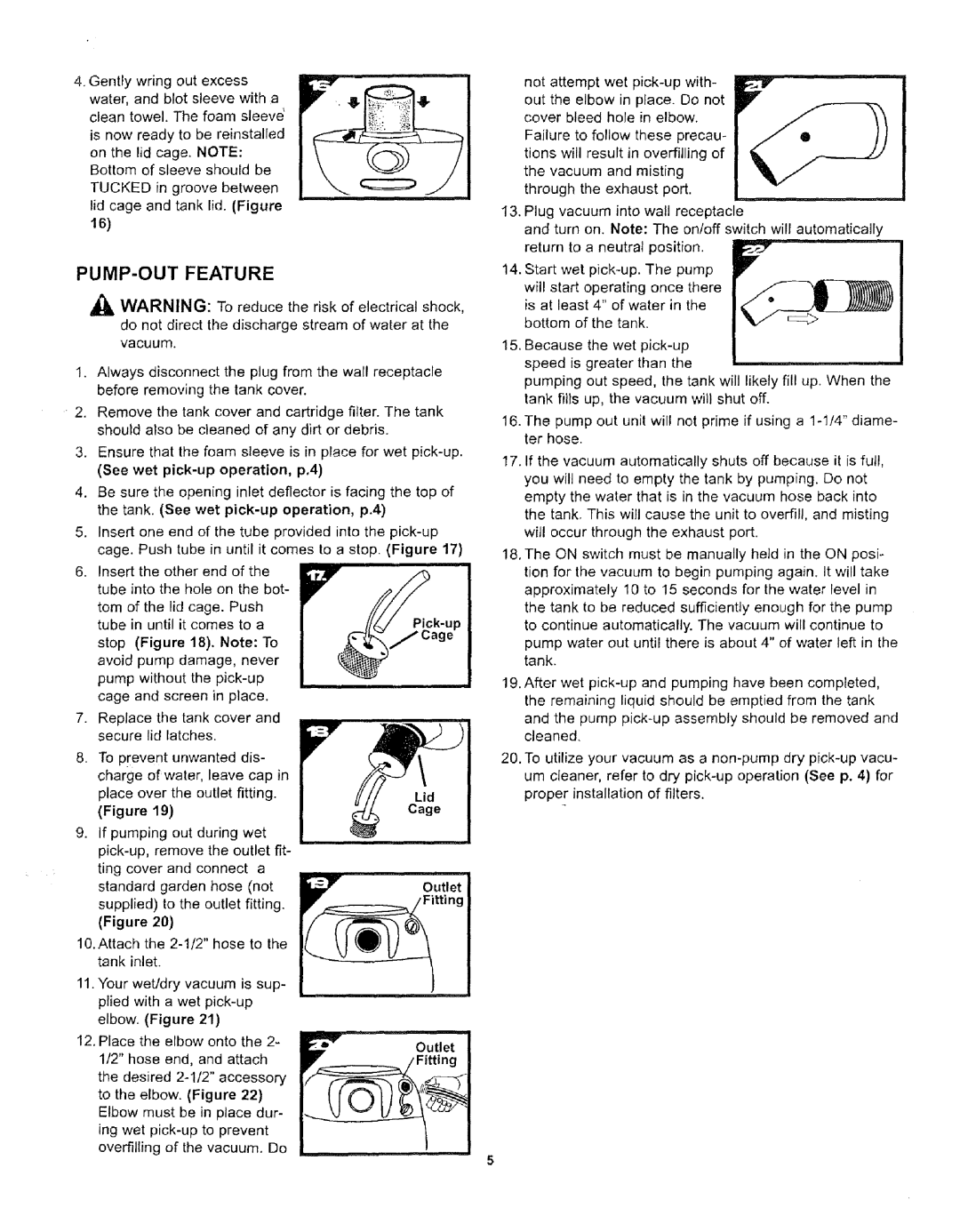
4.Gently wring out excess water, and blot sleeve with a clean towel. The foam sleeve'
is now ready to be reinstalled on the lid cage. NOTE: Bottom of sleeve should be TUCKED in groove between lid cage and tank lid. (Figure 16)
PUMP-OUT FEATURE
_, WARNING: To reduce the risk of electrical shock,
do not direct the discharge stream of water at the vacuum.
1.Always disconnect the plug from the wall receptacle before removing the tank cover.
2.Remove the tank cover and cartridge filter. The tank should also be cleaned of any dirt or debris.
3.Ensure that the foam sleeve is in place for wet
4.Be sure the opening inlet deflector is facing the top of the tank. (See wet
5.Insert one end of the tube provided into the
6.Insert the other end of the tube into the hole on the bot-
tom of the lid cage. Push tube in until it comes to a
stop (Figure 18). Note: To avoid pump damage, never pump without the
7.Replace the tank cover and secure lid latches.
8.To prevent unwanted dis- charge of water, leave cap in
place over the outlet fitting. (Figure 19)
9.If pumping out during wet
10.Attach the
11.Your wet/dry vacuum is sup- plied with a wet
12.Place the elbow onto the 2- 1/2" hose end, and attach the desired
not attempt wet
13.Plug vacuum into wall receptacle
and turn on. Note: The on/off switch will automatically return to a neutral position.
14.Start wet
15.Because the wet
pumping out speed, the tank will likely fill up. When the tank fills up, the vacuum will shut off.
16.The pump out unit will net prime if using a
17.If the vacuum automatically shuts off because it is full, you will need to empty the tank by pumping. Do not empty the water that is in the vacuum hose back into the tank. This will cause the unit to overfill, and misting will occur through the exhaust port.
18, The ON switch must be manually held in the ON posi- tion for the vacuum to begin pumping again. It will take approximately 10 to 15 seconds for the water level in the tank to be reduced sufficiently enough for the pump to continue automatically. The vacuum will continue to pump water out until there is about 4" of water left in the tank.
19.After wet
20.To utilize your vacuum as a
